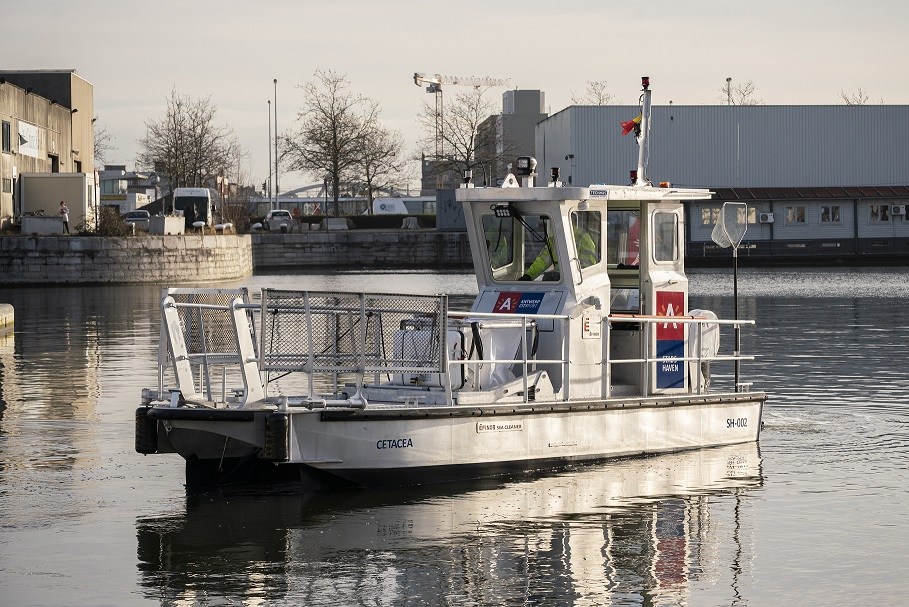The city of Antwerp has deployed a new vessel whose job is to clean up plastic and other pollution from the waters of the inner harbour of the port.
The Cetacea, named after the class of marine mammals including whales, the river dolphin and the harbour porpoise, replaces the Condor, a vessel better suited to working in the sea harbour further out.
“That is why the city harbour administration bought a new vessel to supplement its rescue and patrol vessel,” said Antwerp mayor Bart De Wever (N-VA).
“The new vessel has an innovative suction mechanism to remove all kinds of dirt even in more difficult conditions. From now on we will use this every week to keep the harbour clean.”
Since the earlier deployment of the Condor, the pollution problem in the inner harbour has grown, as a result of the development of the district known as ‘t Eilandje, including the growth of houseboats and tour boats. And since the vessel is better suited to more open waters, a new solution was needed.
The Cetacea is able to handle various kinds of pollutant: household waste and ‘plastic soup’ – the detritus made up of all kinds of plastic waste; contaminated floating dirt composed of oils and fats; large floating objects such as mobile toilets, waste containers, even tree trunks; and oil pollution.
The method is simple, and explains the name: Cetacea ‘swallows’ large quantities of water, and filters out the pollution, including oil. The water goes back into the harbour stripped of all its waste.
The oil taken from the water is taken up in a tank for further treatment on land. The other waste is shipping to a dumping site where it can be processed further by the city’s waste management service.
“We are moving up a gear in the fight against waste on and next to our water surfaces,” said Fons Duchateau, city councillor for city and neighbourhood maintenance.
The new vessel comes just days after the launch of another initiative, this time by the charity River Cleanup, and their ‘river skimmer’ - a Belgian first.
The skimmer has a fixed location in Merksem, and works 24 hours a day, cleaning the water that passes through it of all waste, especially plastic. It can process 500 litres of water an hour, good for 800 cubic metres a day.
“The combination of people and technology is a powerful way to tackle this problem,” said Thomas de Groote, founder of River Cleanup.
“Whereas manually cleaning up litter mainly increases awareness and has an impact on what we buy and consume, the use of technology is mainly aimed at collecting litter as efficiently as possible, in a continuous manner.”
Alan Hope
The Brussels Times

